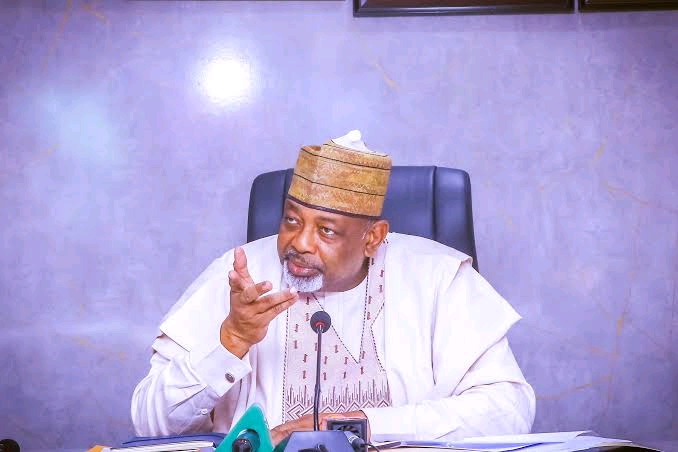…Says the Program is for All Nigerians
From Atiku Sarki, Abuja
The Federal Government, through the Federal Ministry of Agriculture and Food Security, has refuted claims by members of the North-East Caucus in the National Assembly that the region was completely excluded from the Special Agro-Industrial Processing Zones (SAPZ) program.
The Minister of Agriculture and Food Security, Senator Abubakar Kyari, addressed the matter during a press briefing in Abuja on Saturday. He emphasized that the SAPZ program is designed to benefit all Nigerians and every state will be included in its implementation.
“Our attention has been drawn to the concerns raised by the North-East National Assembly Caucus regarding the exclusion of the region from the SAPZ program. It is important to set the record straight—they got it all wrong,” Kyari said.
He affirmed that President Bola Ahmed Tinubu’s Renewed Hope Agenda is anchored on inclusivity, ensuring that no segment of the country is left behind in the implementation of government programs.
In the agricultural sector, the President approved the establishment of the Presidential Food Systems Coordination Council, led by Vice President Senator Kashim Shettima, and including governors from all six geopolitical zones.
“The goal is to guarantee the participation of all tiers of government and stakeholders in agricultural and food security initiatives,” the Minister said.
Addressing the recent groundbreaking ceremonies in Kaduna and Cross River—cited as evidence of exclusion by the caucus—Kyari explained that these events were part of Phase 1 of the SAPZ, which began based on a 2019 design. At that time, states were required to express interest and meet specific eligibility criteria.
“Eight states qualified for Phase 1: Kaduna, Kano, Kwara, Oyo, Ogun, Imo, Cross River, and the FCT,” he said. “Participation was voluntary and based on states meeting outlined requirements. Unfortunately, some states, including those in the North-East, did not initially express interest.”
However, he noted that under the current administration, efforts have been intensified to expand the program. Vice President Shettima, during international engagements in Rome and Des Moines, Iowa, secured a $1 billion commitment from the African Development Bank to onboard more states.
Kyari further clarified that the SAPZ is implemented through a Subsidiary Loan Agreement, where states choose whether to participate. “It is the states’ responsibility to express interest and fulfill the requirements. We have already received expressions of interest from 27 states, with 10— including Gombe, Borno, and Bauchi from the North-East—meeting the criteria for the first tranche of Phase 2,” he said.
He urged the North-East Caucus to encourage the governors of Adamawa, Yobe, and Taraba to take proactive steps to join the program.
The Minister also listed several ongoing agricultural interventions in the North-East to demonstrate the government’s commitment, including:
- Subsidized input distribution to over 8,000 wheat farmers in Gombe State;
- The “Irrigate Nigeria” project in Bauchi State, in collaboration with NASENI, to enable year-round irrigation across 3 million hectares;
- Commissioning of 120 housing units and a Farmer Empowerment Centre in Adamawa;
- The ACReSAL project with the World Bank to restore 1 million hectares of degraded land in the region by 2028;
- Deployment of electric vehicles and solar-powered infrastructure to modernize agriculture and transport;
- Soil health card initiatives and the establishment of testing laboratories, including in the North-East;
- The upcoming VALUE-CHAIN NORTH Project, co-financed by IFAD, targeting 456,000 farmers in the region.
“These are not symbolic interventions. They are strategic, results-driven efforts aimed at building a resilient and inclusive agricultural economy,” Kyari stated.
He reaffirmed the government’s commitment to ensuring that every state benefits from the SAPZ and related initiatives. “From the plains of the North-East to the cocoa belts of the South-West, our mission is one of food security and shared prosperity,” he said.
Kyari concluded by referencing the newly signed Green Imperative Project, which will deliver agricultural mechanization services across all 774 local government areas in the country. “We assure Nigerians that the SAPZ program is for all. No state will be left behind,” he said.


